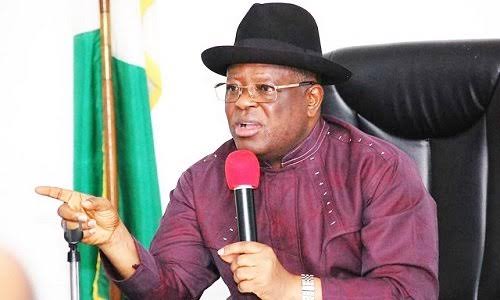Ebonyi State Governor, Chief David Umahi, on Thursday, entered into an agreement with the national leadership of Myetti Allah to forestall further killings of persons and destruction of farms in the state.
Umahi and the Miyetti Allah Cattle Breeders Association, the leaders of herdsmen resident in Ebonyi State held a meeting that lasted over two hours at the Akanu Ibiam International Conference Centre, Abakaliki
The governor, while reading out the agreement reached with the herder, said that henceforth, there will be no more night grazing, no night migration of cattle in Ebonyi.
Umahi, however, warned that no single farmer or herdsmen should go to farm alone to avert attack or killings.
The governor also warned against destruction of crops by cattle and killing of cattle by their host community.
“Myetti Allah must look into the movements of herdsmen from another state into Ebonyi State. Does it mean that Enugu State doesn’t have pasture, Abia State doesn’t have pasture? It’s an act of provocation and we will not allow that.
“We have to fight those who are coming into the state to destroy the peaceful co-existence between us and the herdsmen who have lived with us in this state for long.
“The National Secretary has said it all; he said you have two choices. These people are not from Nigeria, they are migrating, and they are going with sophisticated weapons.
“You have a choice of stopping them or reporting to security agents to also stop them because when they destroy things, we say it is the Fulani people that did it, no. So, let us solve our problems by ourselves, let us show more understanding, and let us live in peace” he said.
In a swift reaction, Miyetti Allah leadership, who spoke through the Secretary, Baba Othman Ngelzarma, revealed the preparedness of the association to embark on training of the herders to avert further crisis in the state.
He warned against inter-state movements of herdsmen, night and under-aged grazing in the state.
Those in attendance in the meeting included; the state security chiefs, traditional rulers, herdsmen leaders from the 13 LGAs, council chairmen, founding fathers of the state among other prominent stakeholders of the state.


